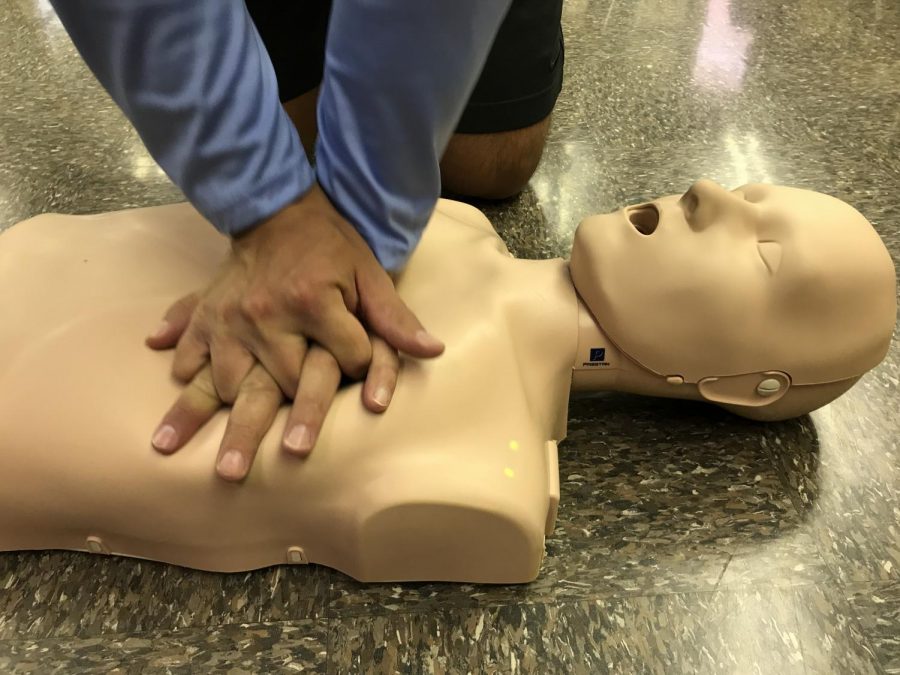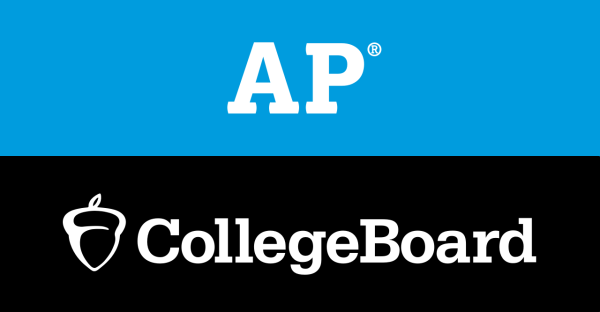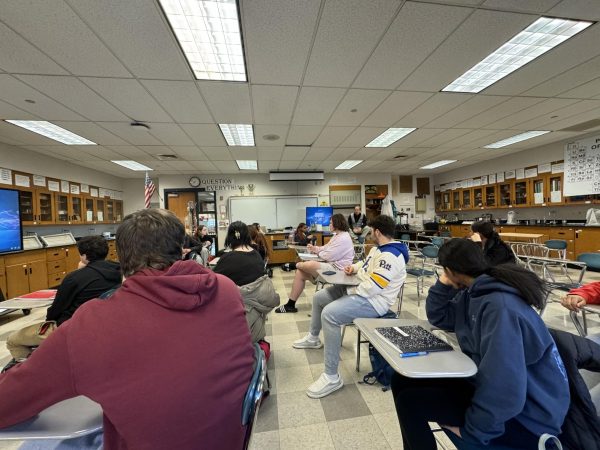EDITORIAL: Should CPR be a graduation requirement?
39 states in the US have made CPR a high school graduation requirement, but Pennsylvania is not one of them.
Approximately 9,000 students nationwide collapse and die in a cardiac emergency, and schools are ranked as the number one location where such incidents occur. If every high school graduate would be educated in CPR and know how to use an automated external defibrillators, there would naturally be a significant increase in first responders available everywhere. Many high school sports games are not lucky enough to have a doctor in the stands, but if coaches and teammates were trained properly, it would allow enough time for the ambulance to get to the player.
70% of Americans feel helpless during a cardiac emergency, and that was definitely the case for 15 year old Gregory Moyer. He collapsed into cardiac arrest from an undiagnosed heart condition on a high school basketball court with no one educated enough to keep him alive. With no service in the gym, it took almost 30 minutes before first responders were able to get to him. Rachel Moyer is convinced that if someone knew how to do CPR, her son would still be alive.
Since 2000, Moyer has become a strong activist for young people in cardiac arrest. 18 years later, she is still fighting the PA Senate. The legislators are not budging to get Bill 521 passed, one that would make CPR a graduation requirement.
Investing and installing in AEDs are also apart of Moyer’s pursuits. Her family has set up the Gregory W. Moyer Defibrillator Fund to help raise money for schools to provide AEDs (www.gregaed.org).
There is no valid enough reason for Bill 521 to not be passed. It is a simple way for the next generations to always be prepared in any type of situation. This can save so many lives and the cost will not be soaring either if coaches and faculty members who are already trained in CPR teach the classes. In addition to CPR, a basic course on how to use a defibrillator should also be a requirement. In a highly stressed position where someone is in a life or death situation, a person’s adrenaline will be all over the place to try and learn how to use one. A basic idea of how it works and how to set it up will save so much crucial time.
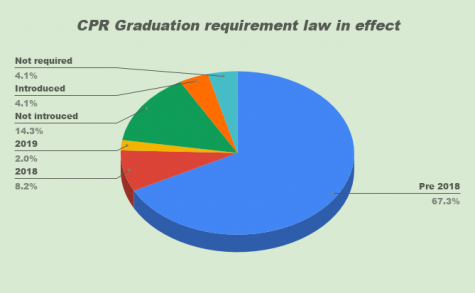
A pie chart showing the amount of states in the United States in the process of requiring CPR for graduation. (Washington D.C. is included)
The American Heart Association/American Stroke Association PA Chapter, Children’s Hospital of Philadelphia, PA Athletic Trainers Society and the PA Medical Society are also in support of the bill. PA is one of the last states to ratify this bill and is waiting consideration in the House.
We might not all be doctors or first responders, but with the implementation of this policy, we will be able to keep someone breathing until someone does get there and give them a greater chance of survival.
North Penn has been moving in the right direction by starting to teach hands on CPR to every student as of three years ago. The class of 2019 will be the first to graduate with training in CPR. The North Penn School District made an investment and purchased 48 mannequin trainers that has an indicator light in the shoulder letting the trainee know if he or she is going deep enough since it is recommended that you go two inches on an adult victim. The high school will continue with this training this year for the third year in a row for sophomores in the healthy decisions classes.
North Penn faculty also participates in wellness hour during some of their inservice days, and recently they added the hands only CPR. Around 80 faculty members participated and NPHS Principal Mr. Pete Nicholson, NP’s Department Head of Health and Phys Education, Mr. Dave Franek, and nurse Mrs. Karen Skillman are in the works of doing several more trainings.
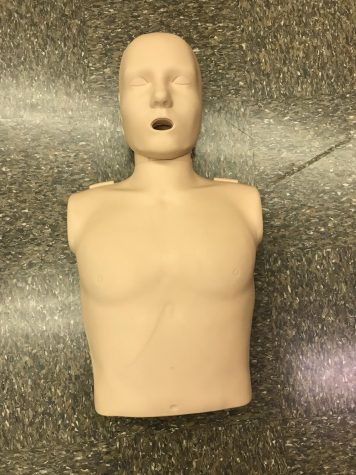
One of the mannequins up close that North Penn High School has invested in.
“The reason we elected to do training over certification is because certification comes with the more overwhelming responsibility to pay, get a card, and it’s a commitment with all the hours you have to train for. If we say we are going to train the whole building, we know we can make that happen. If we say we are going to certify everyone in the building there’s going to be a very hard time consuming costly expense. The reason we decided to do hands only CPR is because the research shows that more people are willing to help out when they know they don’t have to make mouth-to-mouth contact,” explained Franek who has been CPR certified since age 15.
Classes at North Penn also do have the option to become CPR certified. Mrs. Kathleen Kelley, a Health and Phys Ed. teacher, has been certified in CPR since she was 18 years old and has been an American Red Cross Instructor for the past 14 years.
“At North Penn, I have taught both the Emergency Care class and the Lifeguarding class. Each offers training and the potential to get certified in first aid/CPR/AED. The Emergency Care class offers the lay responder level certification, and the lifeguarding class offers the professional rescuer certification. I think it would be great if every person in the building had first aid/CPR/AED training. You do not need to be certified to help someone but training can certainly increase a person’s chance of survival in an emergency situation. In fact, if someone has a cardiac emergency outside of the hospital, their chance of survival can be doubled if they get immediate care from a trained responder,” said Kelley.
A refresher course each year for students after learning it their sophomore year should also be something we can see in the future. Everyone can benefit from a refresher so they will be more confident if a situation arises.
Do you want to be CPR certified? Go to this link for more information. https://www.redcross.org/take-a-class/cpr/cpr-training/cpr-certification
SOURCES:
https://www.pennlive.com/news/2018/10/her_son_died_on_the_basketball.html
https://schoolcpr.com/about/states-where-cpr-training-is-mandatory-for-high-school-graduation/


